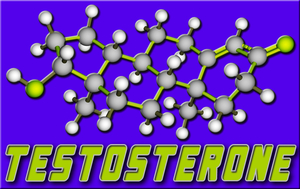Introduction to Penile Health and Hormonal Balance
The intricate relationship between penile health and hormonal balance is a subject of growing interest within the medical community. For American males, understanding this connection is crucial, not only for maintaining sexual health but also for overall well-being. This article delves into the medical perspectives on how penile health can influence hormonal equilibrium and vice versa, offering insights into the latest research and clinical findings.
The Physiology of Penile Health
Penile health is not merely about sexual function; it is a reflection of systemic health. The penis, a complex organ, is influenced by a variety of factors, including blood flow, nerve function, and hormonal levels. Testosterone, the primary male sex hormone, plays a pivotal role in maintaining penile health. It affects libido, erectile function, and even the structural integrity of penile tissue.
Hormonal Balance and Its Impact on Penile Function
Hormonal balance is essential for optimal penile function. Testosterone, produced primarily in the testes, is crucial for the development and maintenance of male reproductive tissues. A decline in testosterone levels can lead to erectile dysfunction, reduced libido, and other sexual health issues. Conversely, conditions such as hypogonadism, where the body does not produce enough testosterone, can have a detrimental effect on penile health.
The Role of Estrogen in Penile Health
While testosterone is the dominant hormone in males, estrogen also plays a role in penile health. Estrogen levels in men, though lower than in women, are essential for regulating sexual function and maintaining bone density. An imbalance, such as elevated estrogen levels, can lead to issues like gynecomastia (enlarged breast tissue) and may indirectly affect penile health by influencing overall hormonal balance.
Clinical Studies and Findings
Recent clinical studies have highlighted the bidirectional relationship between penile health and hormonal balance. Research published in the *Journal of Sexual Medicine* has shown that men with erectile dysfunction often have lower testosterone levels. Additionally, studies have indicated that testosterone replacement therapy can improve sexual function in men with hypogonadism, suggesting a direct link between hormonal health and penile function.
Lifestyle Factors and Hormonal Health
Lifestyle factors play a significant role in maintaining both penile health and hormonal balance. Regular exercise, a balanced diet, and adequate sleep can help optimize testosterone levels. Conversely, obesity, smoking, and excessive alcohol consumption can lead to hormonal imbalances and negatively impact penile health.
The Importance of Regular Medical Check-ups
Regular medical check-ups are essential for monitoring hormonal levels and penile health. American males are encouraged to discuss any concerns about sexual health or hormonal imbalances with their healthcare providers. Early detection and treatment of conditions such as hypogonadism or erectile dysfunction can prevent long-term complications and improve quality of life.
Conclusion: Integrating Penile and Hormonal Health
In conclusion, the interplay between penile health and hormonal balance is a critical aspect of male health that warrants attention. By understanding the medical perspectives on this topic, American males can take proactive steps to maintain both their sexual and overall health. Through lifestyle adjustments, regular medical consultations, and staying informed about the latest research, men can ensure a harmonious balance between penile health and hormonal equilibrium.
This article underscores the importance of a holistic approach to male health, emphasizing the need for integrated care that addresses both penile function and hormonal balance. As research continues to evolve, the medical community remains committed to providing the best possible guidance and treatment options for American males.
Contact Us Today For A Free Consultation

- Understanding the Psychological Toll of Penile Health Issues on American Men [Last Updated On: March 10th, 2025] [Originally Added On: March 10th, 2025]
- Managing Penile Skin Conditions: Symptoms, Treatments, and Psychological Support for American Males [Last Updated On: March 13th, 2025] [Originally Added On: March 13th, 2025]
- Genetics of Penile Development: Insights into Male Reproductive Health [Last Updated On: March 18th, 2025] [Originally Added On: March 18th, 2025]
- Penile Enlargement: Safety, Efficacy, and Informed Decision-Making in American Males [Last Updated On: March 18th, 2025] [Originally Added On: March 18th, 2025]
- Medications and Male Sexual Health: Impacts on Penile Function in American Males [Last Updated On: March 18th, 2025] [Originally Added On: March 18th, 2025]
- Penile Nerve Blocks: Enhancing Pain Management and Surgery for American Males [Last Updated On: March 19th, 2025] [Originally Added On: March 19th, 2025]
- Obesity's Impact on Penile Function: Physiological, Hormonal, and Psychological Insights [Last Updated On: March 20th, 2025] [Originally Added On: March 20th, 2025]
- Understanding Penile Trauma: Types, Emergency Care, and Long-term Management Strategies [Last Updated On: March 20th, 2025] [Originally Added On: March 20th, 2025]
- Penile MRI: Revolutionizing Diagnosis of Male Sexual Health Conditions [Last Updated On: March 20th, 2025] [Originally Added On: March 20th, 2025]
- Testosterone's Crucial Role in Penile Health and Function: A Comprehensive Overview [Last Updated On: March 21st, 2025] [Originally Added On: March 21st, 2025]
- Advancements in Penile Prostheses: Restoring Function and Enhancing Quality of Life [Last Updated On: March 21st, 2025] [Originally Added On: March 21st, 2025]
- Optimal Penile Hygiene Practices for American Males: A Comprehensive Guide [Last Updated On: March 21st, 2025] [Originally Added On: March 21st, 2025]
- Lifestyle Choices and Their Impact on Penile Health in American Males [Last Updated On: March 21st, 2025] [Originally Added On: March 21st, 2025]
- Penile Vascular Health: Understanding, Diagnosing, and Managing for American Males [Last Updated On: March 22nd, 2025] [Originally Added On: March 22nd, 2025]
- Penile Ulcers: Causes, Diagnosis, and Treatment for American Males [Last Updated On: March 22nd, 2025] [Originally Added On: March 22nd, 2025]
- Penile Reconstruction: Techniques, Outcomes, and Future in American Males [Last Updated On: March 22nd, 2025] [Originally Added On: March 22nd, 2025]
- Penile Biopsy: Diagnosing Urological Conditions in American Males [Last Updated On: March 23rd, 2025] [Originally Added On: March 23rd, 2025]
- Understanding Penile Numbness: Causes, Diagnosis, and Treatment Options for American Males [Last Updated On: March 23rd, 2025] [Originally Added On: March 23rd, 2025]
- Penile Skin Grafts: Indications, Procedures, and Outcomes for American Males [Last Updated On: March 24th, 2025] [Originally Added On: March 24th, 2025]
- Spinal Cord Injuries: Impact on Penile Function and Treatment Advances [Last Updated On: March 24th, 2025] [Originally Added On: March 24th, 2025]
- Penile Lymphatic System: Functions, Disorders, and Health Maintenance for American Males [Last Updated On: March 24th, 2025] [Originally Added On: March 24th, 2025]
- Understanding and Managing Penile Swelling: A Guide for American Males [Last Updated On: March 24th, 2025] [Originally Added On: March 24th, 2025]
- Penile Ultrasound: Diagnosing Sexual Dysfunction in American Males [Last Updated On: March 24th, 2025] [Originally Added On: March 24th, 2025]
- Penile Blood Tests: Diagnosing Systemic Health in Men [Last Updated On: March 25th, 2025] [Originally Added On: March 25th, 2025]
- Penile Sensory Neuropathy: Symptoms, Diagnosis, and Management Strategies in Penis Science [Last Updated On: March 25th, 2025] [Originally Added On: March 25th, 2025]
- Radiation Therapy's Impact on Penile Health: Effects and Management for American Males [Last Updated On: March 25th, 2025] [Originally Added On: March 25th, 2025]
- Understanding Penile Rashes: Types, Causes, Treatments, and Prevention Strategies [Last Updated On: March 25th, 2025] [Originally Added On: March 25th, 2025]
- Penile Arteries: Key to Erection Health and Cardiovascular Wellness in American Males [Last Updated On: March 25th, 2025] [Originally Added On: March 25th, 2025]
- Chronic Diseases and Penile Health: Impacts and Management for American Males [Last Updated On: March 25th, 2025] [Originally Added On: March 25th, 2025]
- Penile Girth's Impact on Sexual Satisfaction: Medical Insights and Enhancement Options [Last Updated On: March 25th, 2025] [Originally Added On: March 25th, 2025]
- Understanding Penile Discharge: Causes, Symptoms, and Treatment Options for American Males [Last Updated On: March 25th, 2025] [Originally Added On: March 25th, 2025]
- Understanding Penile Warts: Causes, Symptoms, and Treatment Options for American Males [Last Updated On: March 26th, 2025] [Originally Added On: March 26th, 2025]
- Understanding Penile Veins: Anatomy, Function, and Common Disorders in American Males [Last Updated On: March 26th, 2025] [Originally Added On: March 26th, 2025]
- Chemotherapy's Impact on Penile Health: Insights for American Males [Last Updated On: March 26th, 2025] [Originally Added On: March 26th, 2025]
- Understanding and Managing Penile Allergies: Symptoms, Diagnosis, and Strategies [Last Updated On: March 26th, 2025] [Originally Added On: March 26th, 2025]
- Understanding Penile Edema: Causes, Diagnosis, and Treatment for American Males [Last Updated On: March 26th, 2025] [Originally Added On: March 26th, 2025]
- Understanding and Managing Penile Pain: Causes, Diagnosis, and Relief for American Males [Last Updated On: March 26th, 2025] [Originally Added On: March 26th, 2025]
- Understanding Penile Lesions: Types, Causes, and Effective Treatments for American Males [Last Updated On: March 26th, 2025] [Originally Added On: March 26th, 2025]
- Hormonal Imbalances and Their Impact on Male Penile Health: A Comprehensive Guide [Last Updated On: March 26th, 2025] [Originally Added On: March 26th, 2025]
- Penile Prosthetics: A Comprehensive Guide for Treating Severe ED in American Males [Last Updated On: March 27th, 2025] [Originally Added On: March 27th, 2025]
- Penile Nerve Anatomy: Impact on Sexual Health and Function in American Men [Last Updated On: March 27th, 2025] [Originally Added On: March 27th, 2025]
- Dietary Impact on Penile Health: Key Nutrients and Eating Patterns for American Men [Last Updated On: March 27th, 2025] [Originally Added On: March 27th, 2025]
- Understanding Penile Discoloration: Causes, Symptoms, and Treatment Options for American Males [Last Updated On: March 27th, 2025] [Originally Added On: March 27th, 2025]
- Neurological Disorders and Penile Function: Impact and Management for American Males [Last Updated On: March 27th, 2025] [Originally Added On: March 27th, 2025]
- Managing Penile Itching: Causes, Symptoms, and Effective Treatments for American Men [Last Updated On: March 28th, 2025] [Originally Added On: March 28th, 2025]
- Penile Health: Impact on Physical and Psychological Well-being in American Males [Last Updated On: March 28th, 2025] [Originally Added On: March 28th, 2025]
- Understanding Penile Bleeding: Causes, Symptoms, and Emergency Care for American Males [Last Updated On: March 28th, 2025] [Originally Added On: March 28th, 2025]
- Penile Piercings: Health Risks, Types, and Medical Advice for American Males [Last Updated On: March 28th, 2025] [Originally Added On: March 28th, 2025]
- Penile Sensitivity: Impact on Male Sexual Health and Function [Last Updated On: March 29th, 2025] [Originally Added On: March 29th, 2025]
- Understanding Penile Lumps: Types, Causes, and Management for American Males [Last Updated On: March 29th, 2025] [Originally Added On: March 29th, 2025]
- Penile Health and Fertility: Insights and Management for American Males [Last Updated On: March 30th, 2025] [Originally Added On: March 30th, 2025]
- Penile Injuries: Impact on Sexual Health and Management Strategies for American Males [Last Updated On: March 30th, 2025] [Originally Added On: March 30th, 2025]
- Understanding Penile Sores: Causes, Symptoms, and Treatments for American Males [Last Updated On: March 30th, 2025] [Originally Added On: March 30th, 2025]
- Understanding and Treating Penile Redness in American Males: Causes, Symptoms, Solutions [Last Updated On: April 2nd, 2025] [Originally Added On: April 2nd, 2025]
- Penile Dermatitis: Symptoms, Causes, and Treatment Options for American Males [Last Updated On: April 3rd, 2025] [Originally Added On: April 3rd, 2025]
- Penile Health: Enhancing Sexual Wellness and Partner Satisfaction in American Males [Last Updated On: April 4th, 2025] [Originally Added On: April 4th, 2025]
- Penile Health and Mental Well-being: A Holistic Approach for American Males [Last Updated On: April 5th, 2025] [Originally Added On: April 5th, 2025]
- Causes, Diagnosis, and Management of Penile Burning in American Males [Last Updated On: April 5th, 2025] [Originally Added On: April 5th, 2025]
- Penile Health's Impact on Urinary Function: Insights and Care for American Males [Last Updated On: April 7th, 2025] [Originally Added On: April 7th, 2025]
- Managing Penile Dryness: Causes, Symptoms, and Effective Dermatological Treatments [Last Updated On: April 8th, 2025] [Originally Added On: April 8th, 2025]
- Penile Health and STI Prevention: A Comprehensive Guide for American Males [Last Updated On: April 8th, 2025] [Originally Added On: April 8th, 2025]
- Understanding Penile Blisters: Causes, Symptoms, and Effective Management Strategies [Last Updated On: April 9th, 2025] [Originally Added On: April 9th, 2025]
- Penile Health's Impact on Prostate Wellness: A Guide for American Males [Last Updated On: April 12th, 2025] [Originally Added On: April 12th, 2025]
- Understanding and Managing Penile Sensitivity Disorders in American Males [Last Updated On: April 12th, 2025] [Originally Added On: April 12th, 2025]
- Penile Health and Fertility: Insights and Strategies for American Males [Last Updated On: April 13th, 2025] [Originally Added On: April 13th, 2025]
- Understanding Penile Foreskin Health: Causes, Symptoms, and Medical Interventions [Last Updated On: April 13th, 2025] [Originally Added On: April 13th, 2025]
- Managing Penile Odor: Causes, Symptoms, and Effective Treatment Strategies for Men [Last Updated On: April 13th, 2025] [Originally Added On: April 13th, 2025]
- Penile Health as a Cardiovascular Indicator: Study Insights and Preventive Measures [Last Updated On: April 14th, 2025] [Originally Added On: April 14th, 2025]
Word Count: 570





















